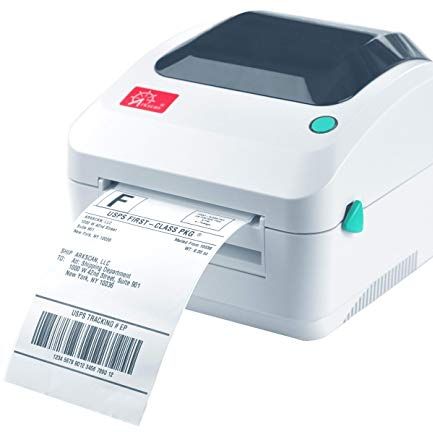Label printers are needed everywhere in the commercial world; be it on your office desk or a dusty industrial space. It’s impossible to find an office or an industry that doesn’t hold the requirement of a label printer.
Though it’s a must, you can’t just buy anything. There are different types of label printers designed for different purposes. You may search for the best label printers in Melbourne and buy what comes out to be the best alternative in terms of price and value.
Buying a random printer would simply mean ignoring your requirements. Say, an industrial label printer would not sit well in a small-scale office environment. And a personal label printer would not meet the conditions in a commercial workplace.
So, let’s see what your options are if you purely require it for office use.
1. Desktop Thermal Label Printers
Based on the usage, there are two types of thermal label printers; desktop thermal printers and industrial thermal printers. Each is designed with specific conditions in mind.
Desktop thermal label printers are best suited for office spaces or retail fronts. Because:
- It requires minimal space
- It functions quietly, and
- It handles minimal printing needs well
You can then go into specific brands of desktop thermal printers for additional features such as wi-fi, Bluetooth, label format, etc. These are also the best food label printers.
2. Handheld Label Makers
Technically, label makers are different from label printers.
Label makers feature a built-in keyboard, operating system, and display. It need not connect to a computer to process printing jobs.
But a label printer does! A computer must be connected for a label printer to receive printing directives.
So, if you wish to have a printer that is incredibly flexible and portable to work with, this may be the right choice for you. The majority of workplaces and warehouses can readily label anything with these mobile label makers.
Despite their small size, handheld label printers are capable of heavy-duty printing. Some versions can even endure environmental conditions as well as unexpected drops. They are quiet and affordable. They are ideal for the following labelling requirements:
- Labelling for logistics and storage, such as shipping, postage, shelving, and barcodes.
- Various types of ticket printing
- Labelling for medical laboratories includes samples, medicines, scrubs, and wristbands.
- Labels for filing and administration in the office
- Making durable labels for communications, cabling, and audio/visual maintenance.
3. Inkjet Label Printers
Inkjet label printers are another great option for office use. Because they are inexpensive and simple to operate, they are perfect for regular office or home use. They are also quite adaptable since they can print on various label materials.
There are two types of inkjet printers: home and office printers that use sheet labels and inkjet printers that use roll labels.
The pros of Inkjet printers are:
- Inkjet printers for the home and office are smaller and less expensive.
- Allows for customisation, which helps businesses to personalise their services to stand out in the market.
- Paper and synthetic substrates in a variety of colours and finishes can be used in home and office inkjet printers.
- They perform effectively in small spaces for low-volume printing, perhaps around a couple of hundred pages each month.
- Durability. Labels made of synthetic materials can survive strong chemicals and climatic conditions without smearing or fading. This includes resistance against UV rays, water, and oil.
- These printers can produce full-colour photos, pages, and documents in photo quality.
4. Color Laser Label Printers
Last but not least, colour laser printers.
Colour laser label printers are among the quickest colour label printers available, with reduced consumable costs. The end product is a quick, low-cost solution for high-volume colour label printing.
label printers employ dry toners rather than wet ink. The toner might be full colour or just black. This enables you to add colour coding and graphics to your label. They are not chemical resistant but typically endure a long time and can tolerate UV exposure.
There you go!
These were the top 4 choices of office label printers in Melbourne.
Conclusion
Given the variety of label makers and printers available for various printing needs, you should first understand your printing requirements before searching for a label printer. Two important questions you should consider:
- Will you use it at the home, workplace, for your small business, or for industrial purposes?
- Will your printing be light, medium, or heavy-duty?
If you underestimate your labelling requirements, you will wind up purchasing a device that will not meet your requirements. And if you overestimate, you will waste resources.
Aside from the above two questions, there are also other factors that influence your purchase, such as:
- The printer’s size
- The printing volume required
- The printer’s price
- User-friendliness and ease of assembly
Find the accurate answers to these, and you will be able to figure out the right label printer for your space.

